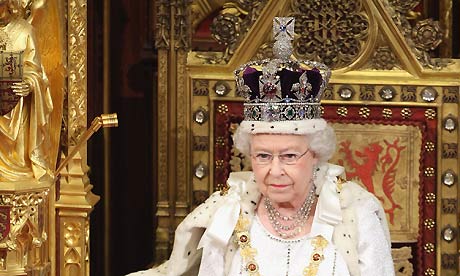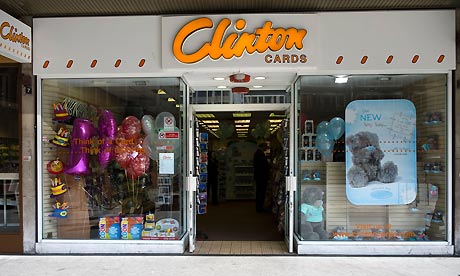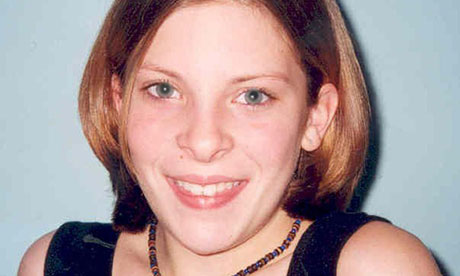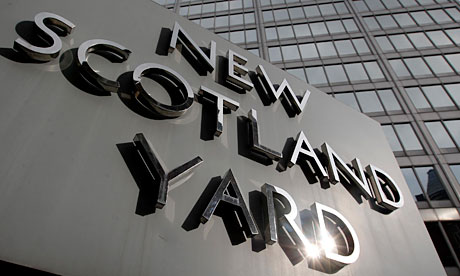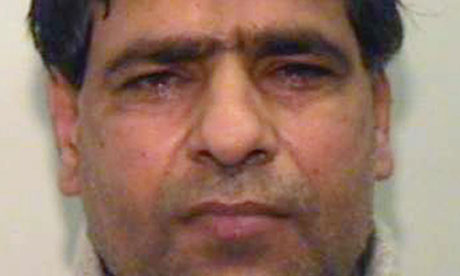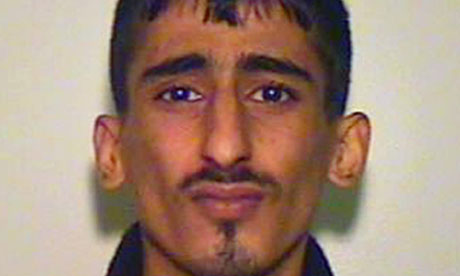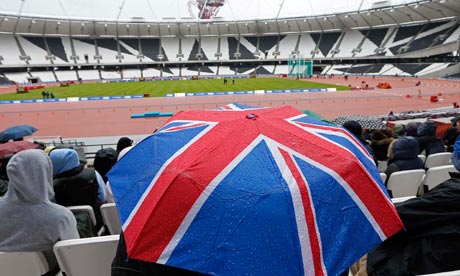One of the victims had sex with 20 men in one night when she was drunk, according to police. The girl was 15 and can barely recount events but her friend recalls men queueing up outside a bedroom. Another had drunk so much alcohol she was raped by two men while she was vomiting over the side of a bed. She then cried herself to sleep.
All the girls targeted by the gang of nine men convicted on Tuesday of sexually exploiting the girls were vulnerable and from broken homes, hanging around takeaway shops in Heywood, near Rochdale, late at night and befriending the staff there. They were plied with drugs, alcohol, food and gifts. Some of the men paid them to be introduced to younger girls and they were "shared" among the men.
Five girls were initially identified as victims of child sexual exploitation, but during the course of the police investigation involving the nine offenders – who were chiefly British Pakistani men with ordinary jobs, often married and well-respected within their community – the police identified a further 42 victims.
Greater Manchester police first heard about the grooming when one of the teenage girls made a complaint four years ago. Detectives took her case seriously and offered her support. But controversially, the Crown Prosecution Service took the decision in 2009 not to charge two of the men convicted on Tuesday, a 59-year-old who cannot be named for legal reasons, and Kabeer Hassan, despite one of the victims giving a lengthy videotaped interview to police. DNA evidence was collected from the girl's clothing that was crucial to the case.
The decision not to prosecute was hastily overturned in summer 2011 when the north-west's new chief crown prosecutor, Nazir Afzal, took up his post.
Afzal said the original prosecuting decision was based on the credibility of the victim, and the original lawyer felt there was "insufficient credibility" to secure a conviction.
"I formed the opinion she was entirely credible and the two suspects should be charged," he said. It is very rare for a chief prosecutor to overturn a decision in this way – it happens only once or twice a year.
The matter has voluntarily been referred to the Independent Police Complaints Commission, which is supervising a Greater Manchester police inquiry. It will report at a later date.
Greater Manchester police have publicly apologised to the victims, adding that "with hindsight" things would be done differently now, as more is much known about this type of criminality. "It's genuinely about vulnerability and demographics," Assistant Chief Constable Steve Heywood said. "This is about adults preying on the vulnerability of young members of society."
Coverage of the phenomenon of on-street grooming has often characterised the issue as being about gangs of Asian men preying on white girls, and the case has sparked concerns about racial tensions in the north-west and the input of far-right elements.
The Child Exploitation and Online Protection Centre (CEOP) carried out a study of on-street grooming that showed that of 753 offenders, nearly half were of Asian heritage. But the police say the phenomenon is not restricted to any one race – the vast majority of those on the sex offenders register in Greater Manchester are white (95%).
"Child sexual exploitation is not confined to one community, age demographic, social status or gender," said CEOP. It found that in one case the first contact had been a white British male who groomed the girls as girlfriends, then passed them on to an Asian gang.
CEOP's chief executive, Peter Davies, said sexual exploitation of childrenwas child abuse and often involved rape. He said it was "premeditated, carried out systematically and with a complete lack of respect or empathy for the victims. They are often singled out for their vulnerability."
A CEOP report published in 2011 spoke of the difficulties, with CPS solicitors "often reluctant to take up cases of child sexual exploitation because victims are often perceived as unreliable".
Detective Chief Superintendent Mary Doyle, of Greater Manchester police, said: "As long as there are adults willing to abuse vulnerable children and other adults, it will continue." On the issue of race, she said it was about vulnerability, not ethnicity. "I think if we start to get ourselves hung up on race and ethnicity issues, we take away the real issues," she said.
One of the victims, who was in the care of Rochdale local authority, wrote a note to a member of staff saying she needed to move out, but refused to elaborate.
The staff member told the trial: "She said she needed to be moved for her safety as well as our own but would not say what that actually involved."
Days later she handed him a second note. It said: "Asians pick me up, they get me drunk, they give me drugs, they have sex with me and pay me not to tell anyone. I want to move." The note was read to the jury.
Giving evidence, the 59-year-old defendant who cannot be identified claimed the girls were clever and ran a "business empire" that extended from Leeds to Nelson and Bradford.
One of the girls caused problems for him and "corrupted" the others, he said. But it was a version of events the jury rejected. The man lost his temper in the witness box, shouting: "It's all white lies. Shame on the police. You're looking for scapegoats. Where are the white people?"
The trial was beset by difficulties, as the far right stirred up unrest, picketing outside Liverpool crown court. A defence barrister was assaulted and refused to return to court, delaying the case as a new defence team took it on. As the first verdicts came in, the leader of the BNP, Nick Griffin, tweeted about it, a potential contempt of court.
The coverage of the case also had a knock-on effect on community tensions in Heywood. In February, concerns emerged over racial tensions after trouble broke out and 200 young people congregated in the centre of town. A car and three police vehicles were damaged and an officer suffered bruising to his arm and legs.
Greater Manchester police in effect issued a curfew when they warned all parents in the area to ensure their children were at home. Within an hour, the streets were clear. The chief constable, Peter Fahy, blamed outsiders who would "like to see groups turn against each other for their own ends". In the end, tensions calmed.
Mohammed Shafiq, director of the Ramadhan Foundation, said of the 68 recent convictions involving child sexual exploitation, 59 were of British Pakistani men, "so clearly we have got a problem when it comes to on-street grooming".
Shafiq said that a minority of Pakistani men thought white girls were worthless, a viewpoint he and he said the majority of the community found abhorrent.
